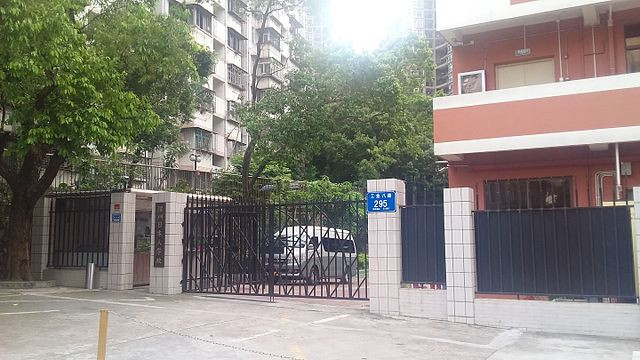A 10-year-old Japanese schoolboy was fatally stabbed on Wednesday near his school in Shenzhen, China, marking the second such attack targeting Japanese nationals in recent months. The boy, a Japanese citizen born to a Japanese father and a Chinese mother, was attacked by a 44-year-old man, identified by his surname, Zhong, while on his way to school. He succumbed to his injuries early Thursday, according to officials in Tokyo and Beijing.
The tragic incident has raised diplomatic concerns between Japan and China, particularly as it occurred around the sensitive anniversary of the Mukden Incident on September 18, 1931, which China commemorates as the start of Japan's invasion of Manchuria. Japanese Foreign Minister Yoko Kamikawa, expressing condolences and frustration, emphasized the importance of securing safety for Japanese nationals in China. "This should never happen in any country, especially to a child," Kamikawa said during a press conference in Tokyo. She added that Japan had previously requested increased security around Japanese schools in China ahead of the historical anniversary.
The stabbing took place roughly 200 meters from the gates of Shenzhen Japanese School, located in the affluent Shekou district, which is home to a large foreign community. Chinese authorities have arrested Zhong at the scene, and local police are investigating the case. However, the motive for the attack remains unclear.
Lin Jian, a spokesperson for the Chinese Ministry of Foreign Affairs, acknowledged the severity of the incident and expressed sorrow for the loss. "Medical experts made every effort to save his life, and the Chinese side will provide necessary assistance to the family," Lin stated. He further emphasized that the attack was an isolated event, asserting, "Such incidents could happen in any country." Lin denied that the attack would have long-term repercussions on Sino-Japanese relations, stating, "We always welcome people from all countries, including Japan, to come to China for traveling, studying, or living."
The incident comes on the heels of another attack in June, when a man assaulted a bus transporting Japanese schoolchildren in the city of Suzhou. That attack resulted in the death of a Chinese national who had attempted to shield a Japanese mother and her child. While Chinese officials have dismissed any connection between the two events, the frequency of such violence against Japanese nationals has led to growing concern within Japan's expatriate community in China.
The Japanese Embassy in China issued a warning to its citizens, urging them to remain vigilant in light of recent knife attacks. "We take this incident extremely seriously," Kamikawa stated, reaffirming Japan's request that Beijing provide more detailed information about the attack and implement stricter security measures to prevent further harm to Japanese citizens. Kamikawa also advised Japanese schools across China to review their safety protocols and enhance protective measures where necessary.
At the Japanese school in Shenzhen, flowers and wreaths were laid at the entrance by locals and foreigners alike. A resident from the area, speaking anonymously, condemned the attack, saying, "As Chinese people, we oppose this behavior and teachings of hate that lead to such evil consequences." This sentiment reflects ongoing concerns about anti-Japanese sentiment in China, which has been simmering since the historical tensions of World War II and subsequent territorial disputes.
For many Japanese nationals in China, the timing of the attack-on a date that commemorates a key historical moment between the two countries-has added an unsettling layer of anxiety. "I have lived here for seven years and didn't know we need to be cautious for being Japanese while living in China," said one Japanese parent living in Shenzhen, who asked to be identified only by his surname, Suzuki, out of safety concerns.
In response to the incident, the local Japanese chamber of commerce released a statement calling on the Japanese government to ensure the safety of its nationals in China. The chamber emphasized the need for stronger communication between Japanese businesses, schools, and Chinese authorities to prevent further violence.
Although the attack has not been widely covered in Chinese media, Chinese citizens have taken to social media to express their condolences and condemn the violence. On the popular platform Weibo, many users posted messages mourning the boy's death and calling for justice. Despite the public outcry, there is apprehension about how such incidents might influence already strained diplomatic relations between China and Japan.
The Chinese government continues to downplay any political ramifications, with Lin reiterating that individual cases like this should not affect broader cooperation between the two nations. However, as calls for increased security around Japanese institutions grow, both governments will need to work closely to prevent further incidents and reassure the Japanese community in China.






